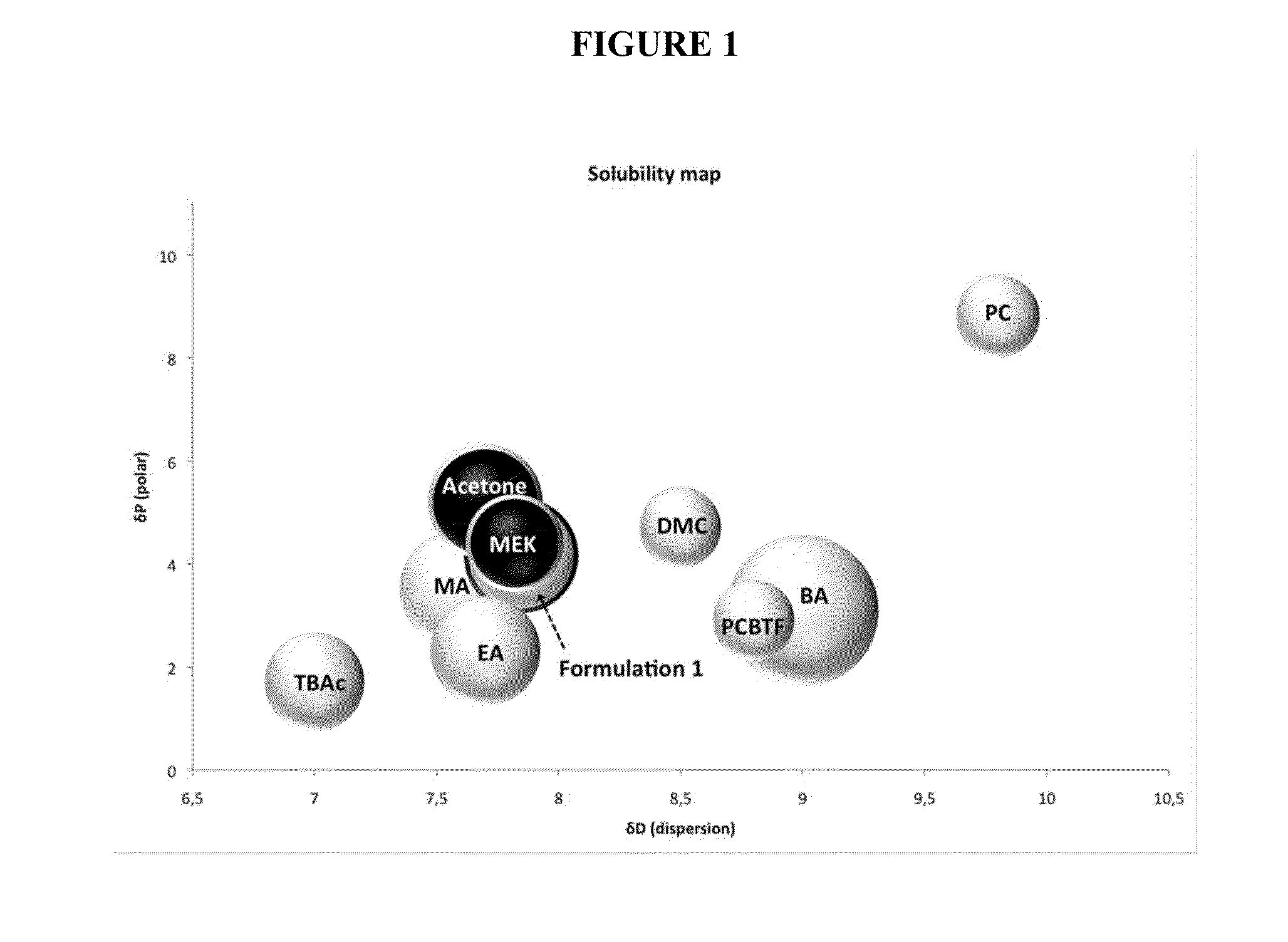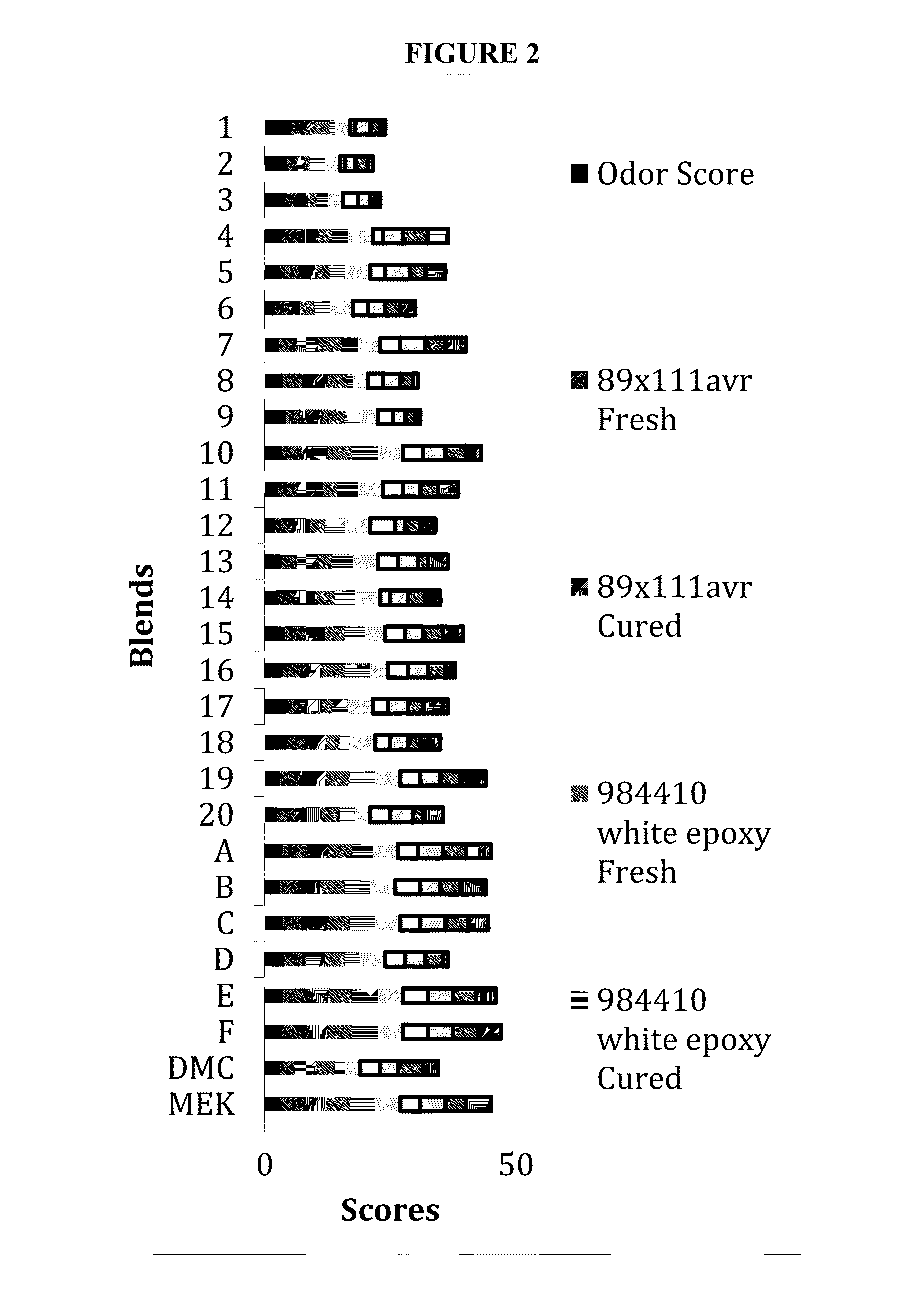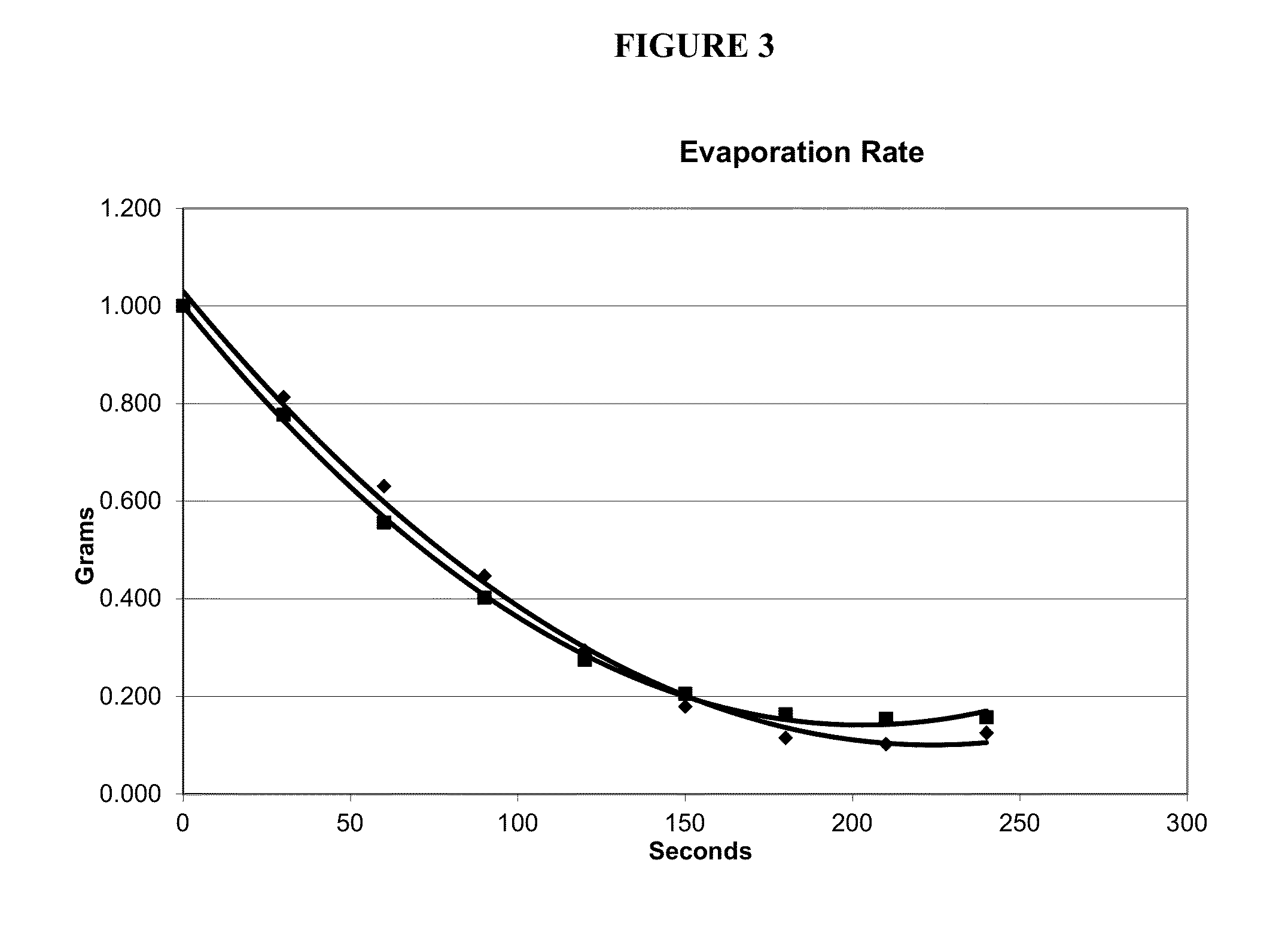Solvent formulations
a technology of solvents and formulations, applied in the field of solvent formulations, can solve the problems of toxic and/or environmentally deleterious properties of many of these solvents, and achieve the effect of low toxicity
- Summary
- Abstract
- Description
- Claims
- Application Information
AI Technical Summary
Benefits of technology
Problems solved by technology
Method used
Image
Examples
example 1
[0093]Candidate compounds were selected using a number of environmental criteria, such as low flammability, safety, low VOC or VOC exempt status, and sustainable sourcing.
[0094]Candidate compounds were also selected based on their physicochemical properties as, for example, determined from various chemical databases, such as CHEMnetBASE or Chemspider. Candidates with relatively high flash points, low toxicity and low vapor pressures, when compared with MEK, acetone, n-methyl pirrolidine (NMP) and methyl n-propyl ketone (MPK), etc. were selected for further testing.
[0095]The selected compounds were subsequently combined in different initial blends (Table 2). The blends or formulations described herein were selected through standardized performance tests on fresh and cured epoxy and urethane resins and MEK-based paints. Double blinded standardized performance tests were conducted to identify blends for further testing. The capacity of the blends to properly dissolve 2 adhesives, three...
example 2
[0099]A solvent composition (Formulation 1) was prepared by mixing the following:[0100]72% (v / v) or 69.27 wt % methyl acetate ≧99% purity (CAS #79-20-9)[0101]20% (v / v) or 22.11 wt % dimethyl carbonate ≧99.50% (CAS #616-38-6)[0102]8% (v / v) or 8.62% wt % benzyl alcohol, ≧99.90% purity (CAS #100-51-6)
[0103]In Formulation 1, dimethyl carbonate was used to increase the dispersion and decrease the hydrogen bonding of the blend, while benzyl alcohol was used to lower the polarity.
[0104]Formulation 1 has a MIR value of 0.46 and a predicted flash point of about 7.5° C.
[0105]Formulation 1 has an evaporation rate=3.6 (MEK=3.8).
example 3
[0106]A solvent composition (Formulation 2) was prepared by mixing the following:[0107]88% (v / v) or 85.01 wt % methyl acetate ≧99% purity (CAS #79-20-9)[0108]12% (v / v) or 14.99 wt % propylene carbonate ≧99.5% purity (CAS #108-32-7)
[0109]Formulation 2 has an MIR value of 0.09 and a predicted flash point of about 9° C.
[0110]Formulation 2 was able to dissolve MEK-based paints and resins successfully.
PUM
| Property | Measurement | Unit |
|---|---|---|
| flash point | aaaaa | aaaaa |
| flash point | aaaaa | aaaaa |
| flash point | aaaaa | aaaaa |
Abstract
Description
Claims
Application Information
 Login to View More
Login to View More - R&D
- Intellectual Property
- Life Sciences
- Materials
- Tech Scout
- Unparalleled Data Quality
- Higher Quality Content
- 60% Fewer Hallucinations
Browse by: Latest US Patents, China's latest patents, Technical Efficacy Thesaurus, Application Domain, Technology Topic, Popular Technical Reports.
© 2025 PatSnap. All rights reserved.Legal|Privacy policy|Modern Slavery Act Transparency Statement|Sitemap|About US| Contact US: help@patsnap.com



